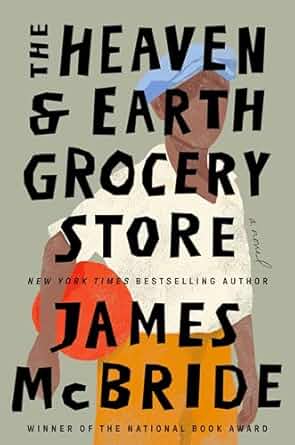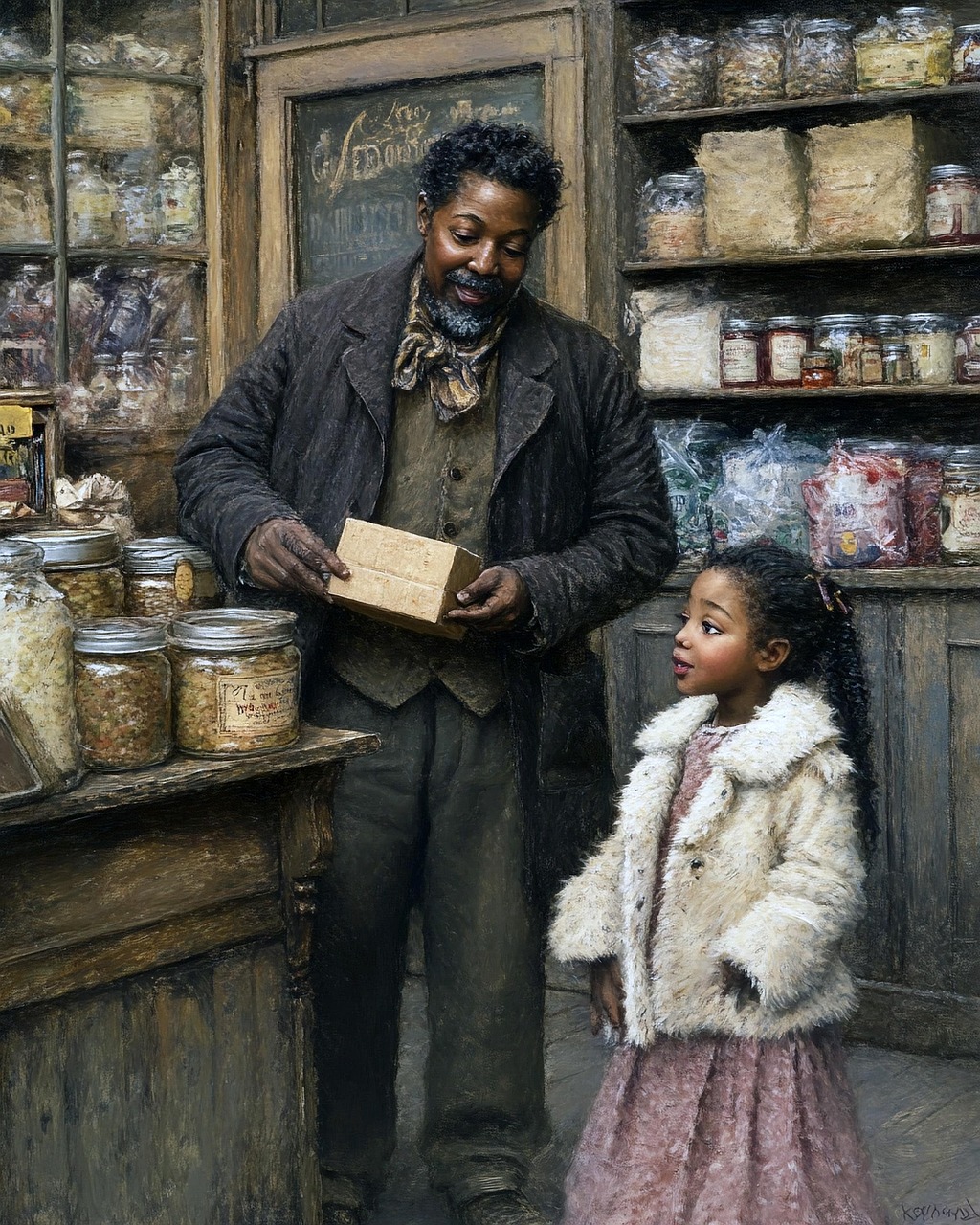 “Light is only possible through dialogue between cultures, not through rejection of one or the other.”
“Light is only possible through dialogue between cultures, not through rejection of one or the other.”
Author: James McBride
Set in the 1930s, The Heaven and Earth Grocery Store is the story of Chicken Hill and its diverse residents. It’s a uniquely American story, showcasing elements of the diaspora, highlighting racism and segregation, focusing on the individuals who compose a community, and championing overcoming through effective resistance. The story has a bit of everything (and everyone), but mainly focuses on the town’s Jewish and Black communities, which form a close relationship with each other through the magically named grocery story where Shona, the proprietress, fights her own battle against society and fights for what should be, not what is.
McBride’s story is both moving and difficult, in equal measures. This book succumbs to one of my personal bugbears: an excess of main characters, side characters, and even tertiary characters. It’s hard to tell if this is on purpose – McBride is evidently trying to capture the complexities, lies, betrayals, misunderstandings, and nobilities of a community. But keeping up with everyone, how they are related or interrelated, how their histories intertwine, who they have (and have not) shared secrets with, and who is who is a struggle that makes parts of the book, especially the beginning and the ending, difficult to follow. For a story about community and relation, we need clarity. We need a character list, a map, and a cheat sheet. We either need way more pages, or way fewer characters. We also need patience – a virtue I struggle to adopt.
The Heaven and Earth Grocery Store is also trying to do A LOT. Sometimes it succeeds in heart wrenching ways, but often it leaves a concept half explained, a story or aside half started. Is this on purpose – giving us an intersection of life that does not answer all the questions? Maybe. But it comes off as sloppy.
For example, we have an antagonist, the self-named “Son of Man.” The name with its religious connotation seems to intimate a bigger story, a larger point. Yet . . . we only get a wide view of the villain and his comeuppance, leaving many questions unanswered. Was he just there as a catalyst then? What did the name, if anything, signify? What was his relation to the so called “Lower Gods” – a group of Black people who live in a different part of town? Why are the Chicken Hill Black community wary of the Lower Gods . . . and what does this antagonism mean to the story? It comes into play in the end, but we dash through it, the explanations being dropped half-way through. The result is significant, so we are left wondering why such a central disconnection in the Black community is left to last, and why we get so few details.
We also have other immigrant communities briefly entering the picture, only to disappear or have minor roles. What does it all mean? Why were they included, and what are their experiences and moments in the story meant to tell us? Eventually, I got tired of trying to tease it out. Was there a deeper meaning – probably. Did I care to spend the mental effort and the endless re-reading trying to figure out how it all related. No.
So – what’s the positive? If there were too many characters and far too many hard topics to follow, why did I call The Heaven and Earth Grocery Store “moving” and give it a three-star rating? Because of three characters and two storylines.
The story of Shona, the Jewish woman who operates the grocery story, is inspiring and incredible. Shona is complicated and rebellious. She’s intelligent, however, and her rebellion brings communities together. What she teaches the other characters through her life is impactful, and helps unfurl the ending, but long before the effects of her approach are felt on the characters, they are

Image by Alana Jordan from Pixabay
felt on the readers. Shona is a women in a despised, minority community. She is also disabled. Yet she is freer than the white characters who supposedly symbolize “success.” Shona, however, is realistic and her story has a tragic trajectory that leaves us thinking. McBride may skim quickly over many characters in the story, but he spends time and talent to bring Shona and her world and thoughts alive. We love her, in the end, just as much as Moishe, her husband who is torn between society’s definition of success and his wife’s nobler pursuits.
The other character that kept me turning pages was Dodo, a Black boy who, through an accident, is left deaf and nearly mute. Dodo, like Shona, has a higher calling, and one noble action on his part makes him a target. He is sent to a place that is half mental asylum, half prison, and there he learns more about compassion and connection and doing the right thing at all costs. He’s a well-rounded character, a child who is forced to become a man overnight, and another person that stays with us as the last pages rustle.
Finally, there is Dr. Roberts, the main villain of the piece. He is a white doctor who marches in the KKK rallies and has an unhealthy interest in Shona. His villainy is well drawn, in that the author does make him into a complex, relatable human who is nevertheless despicable. Dr. Roberts, unlike Son of Man, is completely drawn, and it is impossible for readers resist hating him., We’re drawn into the story further because we want to see this man fall and fall badly.
In conclusion, The Heaven and Earth Grocery Store is a complex book. Half of it is annoying and directionless, and half of it is sublime. It’s hard to either recommend or not recommend this book, and so I leave it to the reader to take the good with the bad and decide if The Heaven and Earth Grocery Store is worth the time it takes to read.
– Frances Carden
Follow my reviews on Twitter at: https://twitter.com/xombie_mistress
Follow my reviews on Facebook at: https://www.facebook.com/FrancesReviews
- Book Vs Movie: The Shining - April 6, 2020
- Thankful For Great Cozy Mysteries - December 13, 2019
- Cozy Mysteries for a Perfect Fall - October 20, 2019


